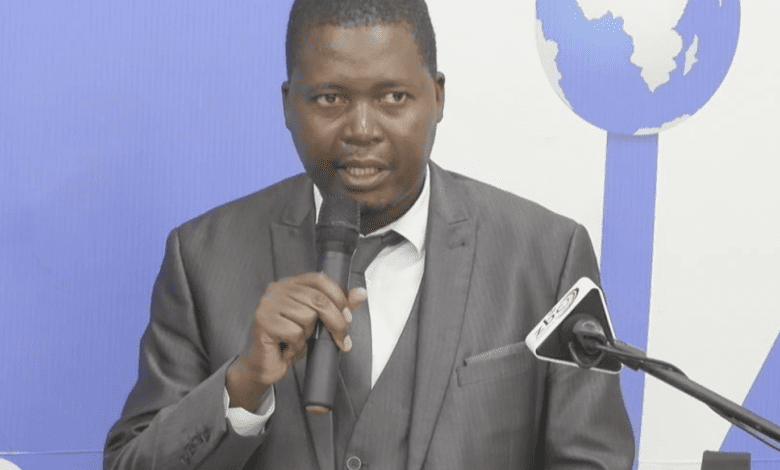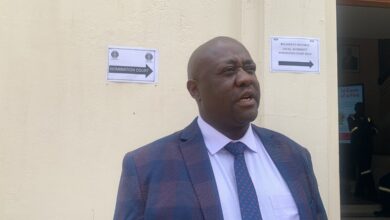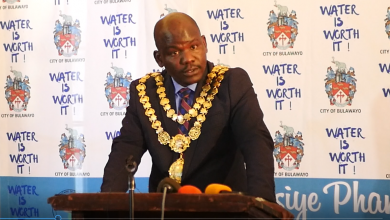Journalists’ safety a priority ahead of 2023 elections

As Zimbabwe commemorates this year’s World Press Freedom Day, MISA Zimbabwe says the media operating environment in the country is improving, as evidenced by the reduction of media freedom violations in the past year.
However, the media watchdog continued to urge the government, political parties and other responsible authorities such as the security forces, to make sure journalists are safe as they go about their professional duties.
In his address, MISA Zimbabwe Chairperson, Golden Maunganidze, said the safety of journalists is of paramount importance, especially ahead of the 2023 national elections.
“Cases of media freedom violations tend to increase during election campaign periods. Our reference to an improving media operating environment is informed by the high number of cases of media freedom violations that we recorded in 2020. However, in 2021 there was a marked reduction in the number of media freedom violations recorded by MISA Zimbabwe,” he said.
This year’s universal World Press Freedom Day theme: Journalism under Digital Siege and was coined to determine and weigh the digital era’s impact on freedom of expression, safety of journalists, access to information and privacy.
In 2020, Zimbabwe witnessed an increase in the number of journalists that were harassed, intimidated, assaulted and detained by members of the police and the army while covering their lawful professional duties.
MISA Zimbabwe said these violations were particularly steep during the first six months of 2020 in the wake of the Covid-19 induced lockdown measures.
“Violations involving a total of 52 media workers including journalists, vendors and media students, were recorded in 2020 compared to 22 in 2021,” Maunganidze said.
“It is, therefore, our hope that this situation continues to prevail during the course of this year with further reductions in the number of cases involving media freedom violations, and most importantly ahead of the 2023 national elections.”
Maunganidze added that there was notable progress in the context of the ongoing media reforms that concerned citizens’ right to access to information, which is at the core of the enjoyment of other rights such as media freedom and freedom of expression.
“In that regard, commendable steps were taken to give effect to the enjoyment of the right to freedom of information through the enactment of the Freedom of Information Act in 2020 in place of the widely discredited Access to Information and Protection of Privacy Act (AIPPA),” said the chairperson.
“The new information law is a progressive step towards fostering citizens’ right to access to information. Other commendable developments include the licensing of the country’s first-ever community radio stations and ‘private’ commercial television stations.”
Looking at this year’s theme, MISA Zimbabwe noted that as highlighted by UNESCO, policymakers, journalists, media representatives, cybersecurity managers and legal experts must explore and develop concrete solutions to address threats posed by increased surveillance to press freedom and privacy.
“This is critical for Zimbabwe as it forges ahead with its media laws and policy reforms underpinned by democratic regulation of the media that fosters professionalism and media accountability,” Maunganidze said.
“We, therefore, take note of the government’s commitment to co-regulation of the media as endorsed nationwide by media stakeholders and journalists. We urge the government to speedily gazette the Zimbabwe Media Practitioners Bill to give effect to co-regulation of the media to instil media professionalism and accountability.”
On the other hand, Maunganidze urged journalists to ‘always’ strive for balance and fairness in their reportage and stories.
“In that regard, media professionalism is the very first line of defence for journalists as it is at the heart of media credibility and integrity,” he said.
In the 2021 State of the Media Report, MISA Zimbabwe recommended the following actions and considerations for 2022:
“Policymakers, consumers, private companies, civil society organisations and POTRAZ should have meaningful, truthful and open conversations for purposes of addressing Zimbabwe’s high data costs which are detrimental to citizens’ right to free expression and access to information.
“The Zimbabwe Media Commission should seriously consider revising the accreditation of journalists from the current one-year period towards a two to a five-year period, renewable before the expiry of the accreditation period to safeguard journalists against being exposed to the dangers that come with using expired cards.”






